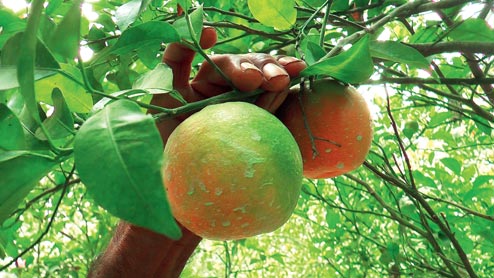Orange growers based in Darjeeling hills are expecting this winter to be a better season in terms of the fruit’s production.
The production of the famous fruit of the hills has declined for the last five to six years. It has come down to less than one lakh quintals from around two-and-a-half quintals due to a number of reasons, including pest attacks.
“This year, we are expecting better production as oranges have already started growing in different orchards of the Mirik subdivision. The yield is quite higher as compared to the previous years and so far, the grow this steady,” said Narbahadur Limbu, the vicechairman of Bunkulung Honey & Agro Processing Industrial Cooperative Society Limited.
In Darjeeling hills, one of the major orange-producing areas is Mirik, the smallest subdivision in the hills. According to Limbu, orange orchards are spread across the subdivision in areas like Bunkulung, Manju, Daragaon, Dewrali busty, Mirik busty, Lepcha villa and Singbuli.
Altogether around 500 growers are involved in orange cultivation.
“They contribute over 50 per cent of the total orange production. The plants are in good condition and each plant is likely to yield around 200 oranges this season. A grower earns Rs 5 to 10 per fruit,” he added.
The earnings of growers have also declined because of the slump in production. “This year, we are expecting a de¬cent earning during the winter after we harvest the crop,” said a grower.
Sources in the state horticulture department said attacks of fungal diseases like citrus powdery mildew and insects like trunk borer and citrus tristeza hamper the production.
“We will carry out our field visits next month to make an assessment of the orange production in this season. So far, we have not received any adverse report from the cultivators,” said an official of the horticulture department.
He mentioned that the department is also encouraging the growers to replace the old plants so that they can get a higher yield in future.
“We have already distributed 6,900 saplings to cultivators of Mirik and another 7,000 saplings to growers of the Bijanbari area. It is necessary to replace old plants,” the official added.










